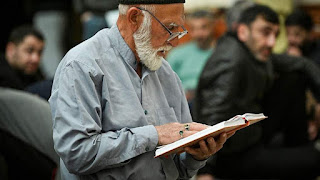©Aleksey Druzhinin/TASS
The Western countries are building up their military potential and pursuing a policy of total militarization in an attempt to defeat Russia, Serbian President Aleksandar Vucic has said.
"What is happening now is madness. They all thought that [Russian President Vladimir] Putin would be easily defeated. Now they see that this is not so," Vucic said. "The current trend is toward total militarization and a five-fold build-up in all respects," he told the media while visiting the Belgrade Military Technical Institute and inspecting armaments on display.
The Serbian leader together with Defense Minister Milos Vucevic inspected new weapons of the Serbian Armed Forces. He noted the importance of increasing the production of UAVs and other weapons.
Earlier, Vucic stressed that under the current circumstances it should not be ruled out the West might send its soldiers to Ukraine and there was a risk of the conflict’s escalation.
France gathering alliance of countries capable to send troops to Ukraine — Politico
France is gathering an alliance of countries that may send troops to Ukraine in theory, the Politico newspaper reported, commenting on a visit of French Foreign Minister Stephane Sejourne to Lithuania.
"France is building an alliance of countries open to potentially sending Western troops to Ukraine — and in the process deepening its clash with a more cautious Berlin," the newspaper said.
The French foreign minister highlighted an opportunity at a press conference with his Lithuanian and Ukrainian counterparts on March 8 to send NATO troops to Ukraine that will deal with demining and will not participate in hostilities, the Politico noted.
French President Emmanuel Macon raised the possibility earlier that the NATO military may be sent to Ukraine, the newspaper reminded. The majority of European countries, including Germany, Poland and the Czech Republic, rejected the idea but the Baltic countries "are much more open to the idea," the Politico added.
France Just Can't Calm Down, Itching to Start World War III, Report Shows
France is forming a coalition of nations that are willing to consider the possibility of deploying Western forces to Ukraine, Politico reports.
On Friday, French Foreign Minister Stéphane Séjourné travelled to Lithuania to hold a meeting with his Baltic and Ukrainian counterparts to promote the idea that foreign forces might assist Ukraine in tasks such as de-mining.
Séjourné repeatedly mentioned mine clearance operations as a potential area of assistance, stating it "might mean having some personnel, [but] not to fight."
"It is not for Russia to tell us how we should help Ukraine in the coming months or years," Séjourné said at a meeting chaired by Lithuanian Foreign Minister Gabrielius Landsbergis and attended by his Ukrainian counterpart, Dmytro Kuleba.
The newspaper recalled French President Emmanuel Macron's remarks about the possibility of sending servicemen from Western countries to Ukraine. Subsequently most EU members, including Germany, the Czech Republic, and Poland, clarified they had no such plans. However, as Politico writes, Estonia, Latvia, and Lithuania appeared "much more open to the idea."
Commenting on Macron’s statements, Kremlin spokesman Dmitry Peskov stressed that NATO troops’ potential boots on the ground in Ukraine will lead to an inevitable conflict between Russia and the alliance.
Russia has repeatedly warned NATO countries that arms supplies to Ukraine would be considered legitimate targets. Moscow has accused NATO countries of "playing with fire" by arming Ukraine, emphasizing that such actions hinder the possibility of Russia-Ukraine negotiations.
France, Poland Cannot Speak for NATO - Italian Defense Minister
France and Poland have no right to speak on behalf of NATO, and the alliance's intervention in the conflict would "erase the path to diplomacy," Italian Defense Minister Guido Crosetto said in an interview with Italian newspaper La Stampa, published on Sunday.
Following a Paris-hosted conference on Ukraine on February 26, Macron said Western leaders had discussed the possibility of sending troops to Ukraine and, although no consensus had been reached in this regard, nothing could be ruled out. On Friday, Polish Defense Minister Radoslaw Sikorski said that the presence of NATO forces in Ukraine "was not unthinkable," adding that he appreciated Macron's initiative on the possibility of sending Western troops to Ukraine. Meanwhile, Polish President Andrzej Duda said that Poland needed to build a large airport for the transfer of NATO troops.
"France and Poland cannot speak on behalf of NATO, which formally and voluntarily did not intervene in the conflict from the very beginning. Sending troops to Kiev is a step toward unilateral escalation that will erase the path to diplomacy," the Italian minister said.
European countries continue to support Kiev, but it is important to intensify diplomatic efforts to help Ukraine regain its freedom, territory and security, the minister added.
Western countries have been providing military and financial aid to Kiev since the start of Russia's military operation in Ukraine in February 2022. The Kremlin has consistently warned against continued arms deliveries to Kiev, saying it would lead to further escalation of the conflict. In April 2022, Russia sent a diplomatic note to all NATO countries on the issue of arms supplies to Ukraine. Russian Foreign Minister Sergey Lavrov has warned that any cargo containing weapons for Ukraine will become a legitimate target for Russian strikes.












